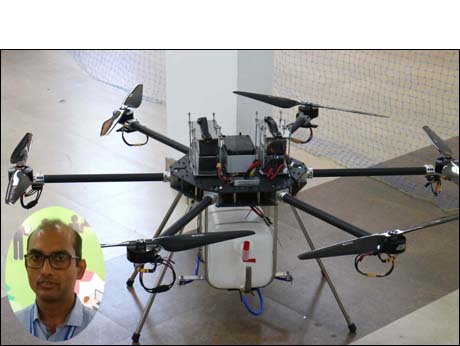
Finally the Government is ready to legalize civilian drone use -- and agriculture will be the first beneficiary
Bangalore, November 28 2017: Two years after lightweight drones became available to lay customers worldwide, the Indian government has taken the first steps to legalize their civilian use in this country.
The Civil Aviation Ministry published the draft regulations for the Civilian Use of Drones or Unmanned Aircraft System (UAS). The drones have been classified on the basis of their maximum take-off weight : Nano (less than or equal to 250 gm); Micro ( 250 grams to 2 kg); mini ( 2 kg to 25 kg); small ( 25 kg to 150 kg) and large ( greater than 1250 kg).
All drones are proposed to be operated in visual line of sight, during day time only and below 200 feet. Nano drones require no license. The other four categories will require registration with DGCA and a Unique Identification Number (UIN). However model aircraft up to maximum take-off weight of 2 Kgs flown below 200 feet inside educational institution premises will not require such registration or UIN. Fuller details are available in this PDF document. The regulations are likely to be finalized by end 2017.
Indian innovation
In India the most significant civilian application in India is expected to be in the area of agriculture. Drones offer a cost efficient way of spraying crops. The University of Agricultural Sciences in Dharwad, Karnataka and the KLE Technological University, Hubballi, Karnataka, have joined to support the development of drones for agricultural applications. They are partnering a startup-- SkyKrafts -- which has developed a drone for spraying fields, that can carry a maximum liquid payload of 20 litres. The drone can spray one acre per hour and approximately 10 acres per day, explains SkyKrafts founder - CEO Srinivasulu Reddy. This will save the labour of two persons minimum.
While the prototype agri-drone costs around Rs 29 lakhs, Mr Reddy said his team, helped by students of UAS and KLETU is already at work to deliver a smaller -- more affordable -- drone capable of delivering 2 litres. The new version will be completely made in India. Full details here